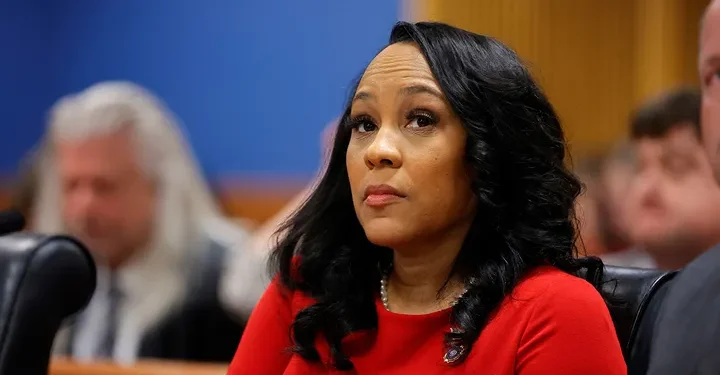Fulton County District Attorney Fani Willis has been permanently sidelined from prosecuting President Donald Trump’s election interference case in Georgia after losing her final appeal before the state’s highest court. What began as an ambitious attempt to pursue charges against a former president has now collapsed under the weight of its own missteps and ethical questions.
The Georgia Court of Appeals ruled last December that Willis and her office could not continue to prosecute the case, citing an “appearance of impropriety” stemming from her romantic relationship with special prosecutor Nathan Wade. For a case of such national importance, the mere appearance of partiality was enough to erode trust. Willis appealed to the Georgia Supreme Court in January, but on Tuesday the high court declined in a 4–3 decision to take up the matter. One justice recused, and another was disqualified.
The ruling underscores a principle often overlooked in today’s hyper-partisan prosecutions: justice must not only be done, it must be seen to be done. When the prosecutor herself is embroiled in personal controversies with a colleague she appointed, the public’s confidence in a fair trial is impossible to sustain.
Trump’s attorney in the case, Steve Sadow, welcomed the decision, stating: “Willis’ misconduct during the investigation and prosecution of President Trump was egregious and she deserved nothing less than disqualification. This proper decision should bring an end to the wrongful political, lawfare persecutions of the president.” His words capture a sentiment shared by many who saw this prosecution as an extension of partisan battles rather than a pursuit of equal justice under law.
Jeff Clarke, a former Justice Department official and one of 19 defendants indicted under Georgia’s Racketeer Influenced and Corrupt Organizations Act, echoed the relief: “Praise the Lord for progress in this case. It never should have been brought in the first place.”
Still, the case is not fully closed. Under Georgia law, the matter now moves to the Prosecuting Attorneys’ Council of Georgia, which will select a replacement prosecutor. Executive director Pete Skandalakis said the process of finding a new lead attorney will begin immediately, though it remains uncertain how long it may take—or whether anyone will be willing to shoulder the burden of a sprawling, resource-heavy case already compromised by controversy.
Willis herself struck a defiant tone, saying: “While I disagree with the decision of the Georgia Court of Appeals and the Georgia Supreme Court’s divided decision not to review it, I respect the legal process and the courts.” She added that she would make her case file and evidence available to the council for use. Yet her insistence highlights the gap between her personal determination and the larger institutional concern over prosecutorial integrity.
The practical reality is that any new prosecutor faces steep hurdles. The case’s original indictment accused Trump of pressuring officials to overturn Georgia’s 2020 vote, orchestrating “fake electors,” and harassing election workers. A Fulton County grand jury indicted Trump and 18 others in August 2023, prompting his surrender at the Fulton County Jail on August 24 and the release of his now-famous mugshot—the first ever for a U.S. president.
But since then, the circumstances have shifted. Trump is once again the sitting president, making prosecution far more complicated under established legal precedent. Fourteen other defendants, however, still face charges. A new prosecutor could choose to continue the full case, narrow the charges, or dismiss the matter entirely. Each path carries political and practical risks, and few prosecutors would want to inherit the mess Willis left behind.
The scandal that ultimately derailed Willis stemmed from her romantic relationship with Nathan Wade, the very prosecutor she had hired to help lead the case. Though both acknowledged the relationship and argued it had no bearing on their work, Wade resigned under pressure. The damage, however, was done. The Court of Appeals concluded that the impropriety—whether real or perceived—was so significant that Willis and her entire office had to be disqualified.
For conservatives, this episode highlights the dangers of politicizing the justice system. When high-profile prosecutions are driven more by ambition and ideology than impartial application of the law, the credibility of our institutions suffers. The Willis saga serves as a cautionary tale: when prosecutors step beyond their duty and allow personal entanglements or political motives to creep in, the result is not accountability but erosion of trust in justice itself.
Ashleigh Merchant, defense attorney for Trump co-defendant Michael Roman, who first revealed the Willis–Wade relationship, put it succinctly: “We hope this will finally close this chapter.”
Whether it closes or drags on under new leadership, the case already carries a lasting lesson. The public expects prosecutors to uphold not only the law but also the appearance of fairness. When those entrusted with such authority instead invite questions of impropriety, the result is exactly what we see now: wasted resources, damaged trust, and a prosecution in tatters.




















